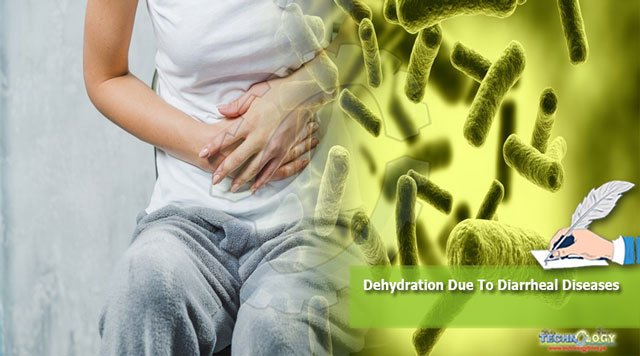Since 1990, diarrhea has been listed as one of the top 10 causes of mortality. According to a report of US department of health and human services , 2195 children die of dehydration due to diarrhea daily. That huge statistics shows the severity of condition.

By Dr.Unaisa Tubba Mushtaq
A number of diseases cause diarrhea including infectious diseases caused by bacteria, viruses and parasites especially of those transmitted by faeces or water. Other causes of diarrhea may also include medication, poor hygienic conditions and many digestive disorders . The most threatening sequelae of diarrhea is dehydration because in the state of diarrhea body tissues face a severe loss of fluids and electrolytes. Unfortunately almost in every case dehydration is considered as secondary sign and treated with less care.
Chronic dehydration:
The most shocking fact is that in many cases patients survive primary disease and diarrhea is also cured but internal dehydration remains that infuses its impacts slowly and steadily. Our unhygienic conditions make it even more severe and leads to a condition where dehydration recurs for relatively longer periods . This condition is termed as chronic dehydration. And when a person achieved this state he/she will get dehydrated regardless of how much fluid he take in on a particular day. As per report in the USA 75% adults suffer chronic dehydration. Lets have a look how severely dehydration can effect our body.
Dehydration can cause headache:
In the state of dehydration, for compensation of body loss, body tissues start loosing water. Like other body tissues , brain tissue also loses water. As a result brain starts shrinking and pull away from skull. This triggers pain receptors present around brain. This all will result in headache and can also trigger migraine.
Electrolyte imbalance:
Severe dehydration causes electrolyte disturbance. This happens because of loss of electrolytes along with even more loss of water. So concentration of sodium in the blood rises. Body needs a balance in electrolyte concentration and the reverse will result in dizziness, fatigue, seizures and even cardiac arrest in severe cases.
Electrolyte imbalance caused by dehydration will lead to improper availability of electrolytes to whole muscles of your body. Muscles need electrolytes like calcium, sodium ,potassium etc to rhythmically contract and relax. This all will end up with muscle spasms. And if your stomach muscle get affected then condition will be even more severe.
Dehydration effects kidney functions:
Dehydration causes reduced blood flow to kidneys.it can also cause build up of wastes and acids in the body, this condition will lead to kidney stones and renal failure due to loss of body water there will be increase in serum mortality that leads to urinary concentration. These cases might be rare but could be life threatening.
Global killer for children:
It has been seen that diarrheal condition are more severe in children of less than 5 years and adults of more than 70 years of age. According to cdc report: diarrhea is a second leading cause of death among children and account for 1 in 9 every child deaths worldwide. Diarrhea in children is mostly about sanitization and hand cleaning practices.
Treatment strategies for dehydration:
Seeing the threats of condition one must sensibly treat dehydration when suffer from diarrhea.
- At first, dehydration should be treated according to its severity. So its pivotal to estimate the level of dehydration you have. In the state of mild diarrhea, a few diarrhea stools in 24 hours, then you will suffer from less dehydration and can be treated by simply compensating body fluids by drinking plenty of water and eating small meals.
- But in the case when you have more than 10 stools per day or have recurrent diarrhea for longer period then loss of body fluids will be more and you should go for intravenous fluid therapy.
- In that case post therapy precautions have a royal place. Even after therapy, continue practicing clean water intake. The National Academies of Sciences,Engineering,and Medicine determined that an adequate daily fluid intake is about 15.5 cups (3.7 liters) of fluids for men and about 11.5 cups (2.7 liters) of fluids a day for women.
- Try to take juicy and hydrating fruits like watermelon, cucumber, coconut water, strawberries, celery . keep taking oral rehydration solution even after recovery. Go for checkup of dehydration level after recovery from severe diarrheal diseases.
- When you are dealing with dehydration in children proper hand washing can reduce condition. Another important cause is rota virus so vaccination for rota virus is also pivotal. Dehydration can be prevented by breast milk but avoid boiled milk or rice water for babies. If signs of diarrhea are still persistent go for medical check up immediately.
Never forget, if you have suffered from any severe diarrheal disease , you will have to take care of your rehydration for lifetime .
Before establishing a goal for increasing a participant’s fluid intake , be sure that they do not have a fluid restriction due to congestive heart failure or other health conditions.
